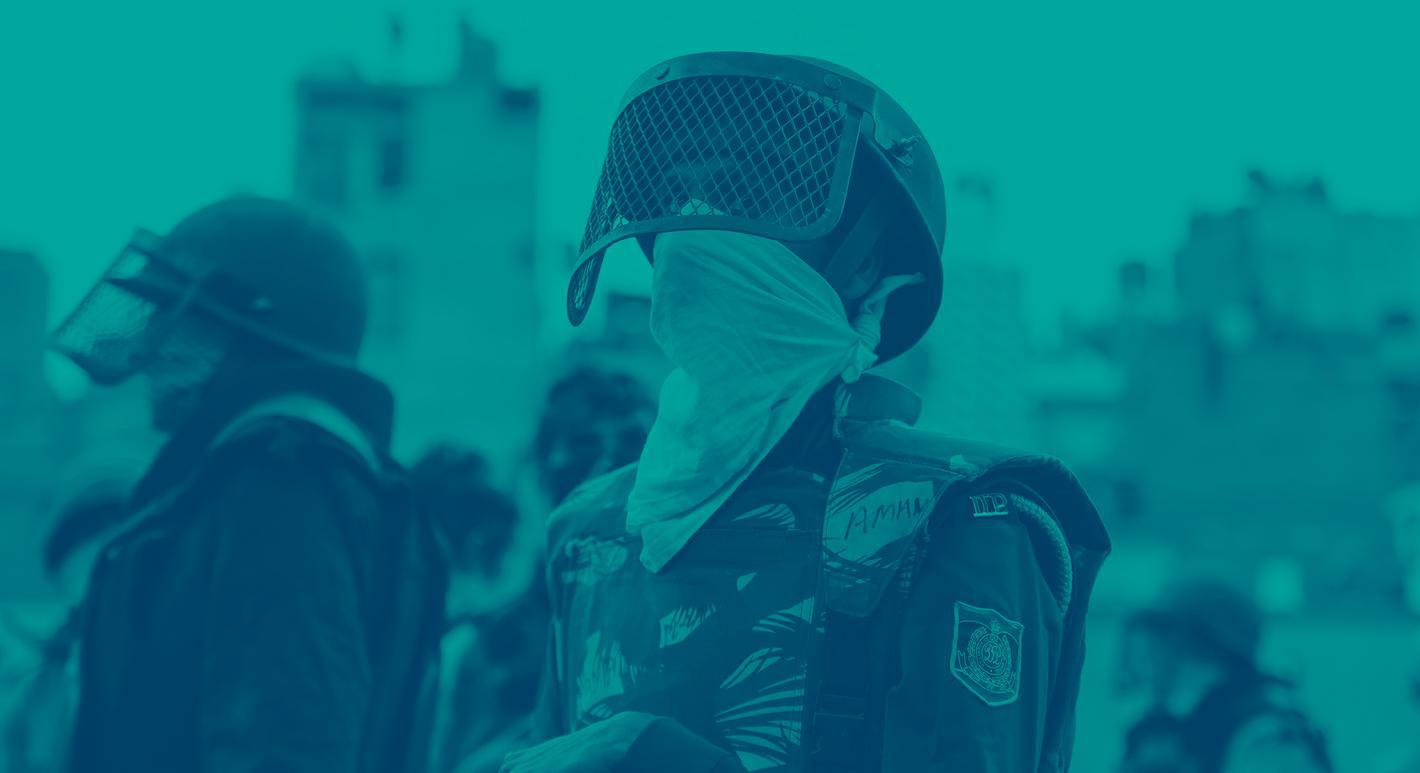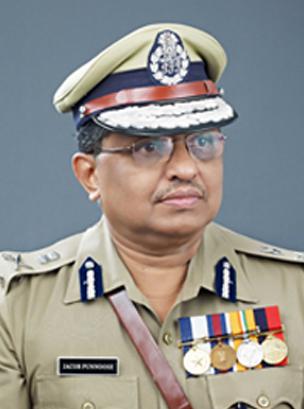{
"authors": [
"Jacob Punnoose",
"Raj Kohli",
"Maja Daruwala",
"Elrena van der Spuy"
],
"type": "event",
"centerAffiliationAll": "",
"centers": [
"Carnegie Endowment for International Peace",
"Carnegie India"
],
"collections": [],
"englishNewsletterAll": "",
"nonEnglishNewsletterAll": "",
"primaryCenter": "Carnegie India",
"programAffiliation": "",
"programs": [],
"projects": [],
"regions": [
"United States",
"South Asia",
"India"
],
"topics": [
"Domestic Politics"
]
}
A Turning Point: Mapping Global Police Reforms
Wed, September 23rd, 2020
Zoom Webinar
Policing: Past, Present, and Future: Carnegie India and Tata Trusts presents a series of webinars that feature crucial stakeholders, experts, and policymakers, as they examine the Indian police establishment and its role in society and the criminal justice system.
Around the world, and through history, attempts at improving policing have been undertaken against the backdrop of numerous transformations.For instance, police reforms in Northern Ireland were catalyzed by the signing of the 1998 Good Friday agreement after decades of sectarian violence. In South Africa, it was the end of Apartheid and a constitutional moment that brought about change, while in England it was the killing of Stephen Lawrence that highlighted the maltreatment of minority communities at the hands of the police. In India, Kerala presents an improved model of policing, while national protests demanding better safety for women and police reforms were brought about by the Nirbhaya incident.What kind of events hold the potential to be disruptive junctures, and how does the process of police reform get initiated? What are the lessons we can draw from various global experiences—both on how to and how not to go about bringing reform?
For our third webinar under the Policing: Past, Present and Future series, we hosted Jacob Punnoose, Raj Kohli, and Elrena van der Spuy, who explored the different reasons that catalyzed change in policing practices and cultures around the world, and lessons that could be drawn from these. The discussion was moderated by Maja Daruwala.
This webinar series seeks to build on the traction garnered by Tata Trusts' India Justice Report, a first of its kind comparative study of the capacity of the justice system across states. Read the full report here.
Carnegie does not take institutional positions on public policy issues; the views represented herein are those of the author(s) and do not necessarily reflect the views of Carnegie, its staff, or its trustees.
Event Speakers
Jacob Punnoose

Jacob Punnoose, IPS, is the former DGP of Kerala. He was the City Police Commissioner of Trivandrum and Kozhikode, Joint Excise Commissioner, Zonal IG of Trivandrum and Kozhikode, Intelligence IG, Additional DGP (Training) and Intelligence DGP. Additionally he also held the positions of Vigilance Director and Chairman, Kerala Police Act Review Committee. He was appointed DGP of law and order in Kerala on 26 November 2008. He currently serves as the Chairman, Swasthi Foundation, and Executive Director of Pushpagiri Medical College and other institutions related to it, and is a member of the Executive Committes of the Commonwealth Human Rights Initiative and the Indian Police Foundation.
Raj Kohli

Raj Kohli is the Chief Supt. of the Metropolitan Police Service, which he joined in 1992. In 1999 he was promoted to Inspector and, in 2001, completed the Senior Investigators Course and moved to the Borough of Brent as the Detective Inspector in charge of pro-active operations, before moving into the investigation of major crimes. In 2006 Raj was promoted to Chief Inspector and was made the operational lead for the policing of South Brent. In 2012 Raj played a key role in helping deliver the London Olympics, being in charge of policing all parallel events across the 16 Boroughs south of the River Thames.
Maja Daruwala
Commonwealth Human Rights Initiative, India

Maja Daruwala is currently senior advisor, Commonwealth Human Rights Initiative and Tata Trusts. She is also Chief Editor, India Justice Report: a first of its kind ranking of the capacity of states to deliver justice. She is a barrister from Lincolns Inn who has been working to advocate for rights and social justice for over 40 years. For 20 years she was the Director of Commonwealth Human Rights Initiative an international NGO mandated to ensure the practical realization of human rights across the Commonwealth. She is also the special monitor for police and prisons at the NHRC.
Elrena van der Spuy

Elrena van der Spuy is an Associate Professor in the Department of Public Law, a member of the Centre of Criminology, and Deputy Dean of Post-Graduate Studies in the Faculty of Law at the University of Cape Town. She has a PhD from the University of Cape Town, a Masters degree in Sociology from University of Stellenbosch and has taught Sociology and Criminology at a number of Institutions. She has been interested in the social history of police and policing in South Africa. Elrena has published on crime and policing in South Africa, Africa and internationally.